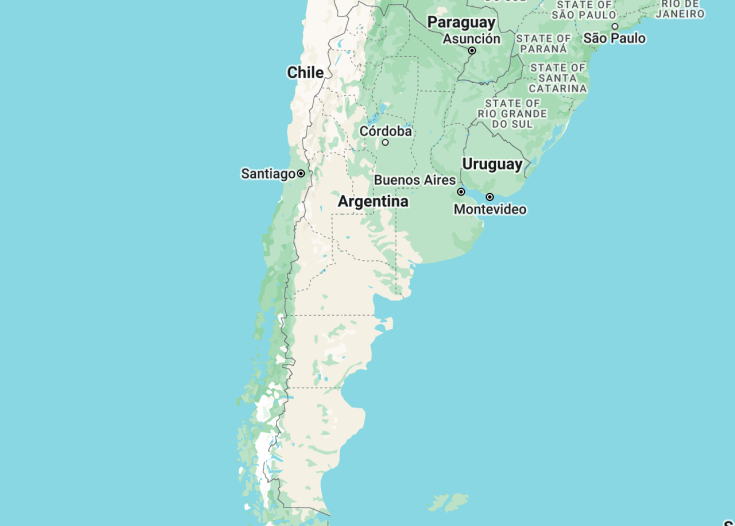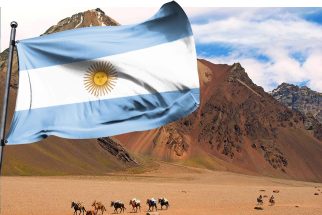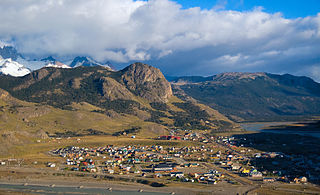Argentina is a diverse and captivating travel destination that boasts stunning natural landscapes, vibrant cities, and a rich cultural heritage. From the majestic peaks of the Andes to the vast grasslands of the Pampas, there is something for every traveler to enjoy. Discover the vibrant tango scene in Buenos Aires, explore the awe-inspiring Iguazu Falls, or venture to the southernmost city in the world, Ushuaia. With its world-class food and wine, welcoming people, and breathtaking scenery, Argentina is a must-visit destination for any traveler seeking a truly unforgettable experience.
Immerse yourself in Argentina’s rich culture and history by visiting local museums and attending traditional dance performances.
Planning a trip to Argentina? Don’t miss the opportunity to sample the country’s famous steak and Malbec wine.
How to best experience Argentina?
Tickets, tours, and activities for Argentina are available at these providers:
Click on the logos below to easily compare prices.

Feeling lucky? Try the direct search:
GetYourGuide.com Viator.com Trip.com Expedia.com Tiqets.com Ctrip.com (中文)
Top cities to visit in Argentina
Discover the best cities of Argentina and best places to visit.
Argentina: A Land of Contrasts and Natural Beauty
| Capital | Buenos Aires |
| Time in Argentina | GMT -3 |
| Language spoken | Spanish |
| Population | 45,376,763 (World Bank) |
| Religion | Roman Catholic (92%) Protestant (2%) Other (6%) |
| Currency | Argentine Peso (ARS) |
| Airports | Ministro Pistarini International Airport (EZE) Jorge Newbery Airfield (AEP) |
Argentina: A Land of Contrasts and Natural Beauty. Argentina, located in South America, is a country renowned for its diverse landscapes, rich cultural heritage, and vibrant cities. With a population of over 45 million people, Argentina is one of the largest countries in Latin America. Its capital, Buenos Aires, is a cosmopolitan city that blends European elegance with Latin American flair.
Where is Argentina located?
Argentina is located in the southern region of South America, bordered by Chile to the west, Bolivia and Paraguay to the north, Brazil to the northeast, and Uruguay and the Atlantic Ocean to the east. It spans a vast territory, encompassing a wide range of climates and landscapes, from the rugged peaks of the Andes Mountains to the expansive grasslands of the Pampas.
What is Argentina famous for?
Argentina is famous for its tango music and dance, as well as its love for football. Tango, born in the neighborhoods of Buenos Aires, is a passionate and sensual dance that has captivated people around the world. Argentina is also known for its legendary football players, such as Diego Maradona and Lionel Messi, who have achieved international stardom. Additionally, Argentina is renowned for its beef production and delicious cuisine, which includes traditional dishes like asado (barbecue) and empanadas.
History
(1516-1810) Pre-Independence Era
Argentina’s history began with Spanish exploration during the early 16th century when Juan Díaz de Solís explored the region. Though the first settlements met with resistance from indigenous tribes, the Spanish were persistent in their colonization efforts. Buenos Aires, founded in 1536, was initially abandoned due to indigenous attacks but was re-established in 1580. As the Spanish crown established the Viceroyalty of Peru, Argentina became part of this administrative division.
(1810-1880) Wars of Independence and Early Republic
The year 1810 marked the May Revolution, leading to the declaration of Argentina’s independence from Spain in 1816. The subsequent years were marked by internal strife and wars against Spain, Brazil, and other South American territories. With the signing of the Constitution of 1853, Argentina saw a formal establishment of the nation’s governance structures.
(1880-1930) Age of Modernization
Argentina embarked on a period of significant economic growth, propelled by the export of agricultural products. European immigration, especially from Italy and Spain, transformed the nation’s cultural and demographic landscape. Buenos Aires, the capital, rapidly urbanized, becoming a cosmopolitan city.
(1930-1983) From Coups to Dictatorship
The 20th century was turbulent for Argentina. It witnessed numerous military coups, starting in 1930. The most notorious period was the military dictatorship from 1976 to 1983, during which human rights violations, including forced disappearances, became widespread. The Malvinas War in 1982 against the United Kingdom further destabilized the regime.
(1983-Present) Return to Democracy
1983 saw the election of Raúl Alfonsín as president, marking a return to democracy. Argentina faced numerous challenges, from hyperinflation to external debt. In the subsequent years, the country has made significant efforts to strengthen its democratic institutions and address past human rights abuses, though economic instability remains a recurrent challenge.
Visit Argentina
What to see and do in Argentina
Argentina offers a wealth of attractions for visitors to explore. From the cosmopolitan capital of Buenos Aires to the breathtaking landscapes of Patagonia, there is something for everyone in this diverse country.
- Explore the vibrant neighborhoods of Buenos Aires, such as Recoleta, Palermo, and San Telmo, and immerse yourself in the city’s rich cultural scene.
- Visit the iconic Iguazu Falls, one of the world’s most impressive natural wonders, located on the border between Argentina and Brazil.
- Embark on a hiking adventure in the stunning landscapes of Patagonia, home to the majestic Andes mountains and the awe-inspiring Perito Moreno Glacier.
- Experience the traditional gaucho culture in the Pampas region, where you can go horseback riding and witness traditional folkloric performances.
- Taste the world-renowned Argentine cuisine, which includes delicious dishes such as asado (barbecue), empanadas, and dulce de leche.
Events in Argentina
Argentina is a country known for its vibrant cultural life and lively events. Throughout the year, various festivals and celebrations take place, showcasing the rich traditions and diverse cultural heritage of the Argentine people.
One of the most famous events in Argentina is the Tango Festival and World Championship, held in Buenos Aires. This event celebrates the country’s iconic dance, with performances, workshops, and competitions attracting tango enthusiasts from around the world. The festival takes place in August.
Another notable event is the Carnival in Gualeguaychú, a city located in the province of Entre Rios. This carnival is one of the largest in Argentina and features colorful parades, music, and dancing. It takes place during the summer months of January and February.
Additionally, Argentina is known for its passion for soccer, and attending a soccer match in Buenos Aires is an experience not to be missed. The atmosphere in the stadiums, such as La Bombonera and El Monumental, is electric, with passionate fans cheering on their teams.
Best time to visit Argentina
The best time to visit Argentina depends on the specific regions and activities you are interested in. Generally, the spring (September to November) and fall (March to May) months offer mild temperatures and fewer crowds, making them ideal for exploring cities like Buenos Aires and enjoying outdoor activities in Patagonia.
However, if you want to experience the vibrant atmosphere of Buenos Aires or attend cultural events and festivals, the summer months (December to February) are the busiest and most lively. This is also the best time to visit the popular beach destinations along Argentina’s coastline.
For outdoor enthusiasts and wildlife lovers, the winter months (June to August) are ideal for visiting Patagonia, as you can witness stunning snow-capped landscapes and spot unique wildlife species.
Is Argentina worth visiting?
Argentina is definitely worth visiting for its diverse landscapes, rich cultural heritage, and vibrant cities. The country offers a unique blend of European and Latin American influences, resulting in a distinctive culture that is truly captivating.
Whether you are interested in exploring the bustling streets of Buenos Aires, trekking through the breathtaking landscapes of Patagonia, or immersing yourself in the traditional gaucho culture of the Pampas, Argentina has something to offer for every type of traveler.
However, it is important to note that like any destination, Argentina has its own challenges and complexities. Economic instability and occasional political unrest can impact travel experiences. It is advisable to stay informed about the current situation and take necessary precautions.
Overall, Argentina’s natural beauty, cultural richness, and warm hospitality make it a worthwhile destination for those seeking adventure, cultural exploration, and unforgettable experiences.









